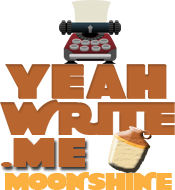I flunked a test once.
I was in undergrad, at my all-girls school. Passing was, supposedly, a prerequisite for graduation.
Flunking it shattered me. I was a great student. I graduated magna cum laude. I never received less than a B in college, except for that exam.
The exam was on speaking. My proctor, an elderly nun who taught public speaking, sat at her neatly arranged desk. I only remember giving her directions, aloud, from the college to my home. I spoke loud and clear, in my normal voice. The directions came easily since I traveled that route often. I wasn’t even nervous.
I just said the directions.
I was sure that I’d passed. I didn’t even bother to worry about my results.
When I checked the bulletin board in the hall a few days later, I was shocked. Next to my name it said “FAILED.†I almost cried.
I tried talking to the proctor, but she refused to explain. I talked to my advisor, who seemed as surprised as me, and promised to get to the bottom of it. Nothing happened. I wondered about it, worried about it for months leading up to graduation. I thought for sure that I wouldn’t graduate, despite my good grades. I was certain that my life was ruined. I asked my advisor about it, and she told me not to worry.
I still did.
A few weeks before graduation, I had a presentation for my Irish lit class. I remember that I was speaking on Joseph Campbell’s The Hero with a Thousand Faces. All of a sudden, my voice disappeared. I could not speak, couldn’t even think. I didn’t know what was going on. I stopped trying to talk, looked at my notes. My heart was pounding, and I couldn’t figure out my thoughts.
“I’m sorry,†I squeaked.
After a few minutes my voice returned to my body. I did my best to finish my presentation.
Graduation day came, and no one stopped me from walking across the stage. The school president still handed me my diploma. No one in the audience knew that I was a fraud. But the damage was done, and by the time I made it to grad school it was nearly impossible for me to make a presentation, to talk in front of a group.
I’ve thought a lot about that day in my proctor’s office. I’ve wondered just what I did wrong. What was wrong with my voice? I’ll never know. But I have set the scene many times. I’ve realized that a young girl wearing a Star of David on a narrow chain at a Catholic women’s college might have never had a chance against an old, devout nun. Maybe the problem was never with my voice at all.
 



